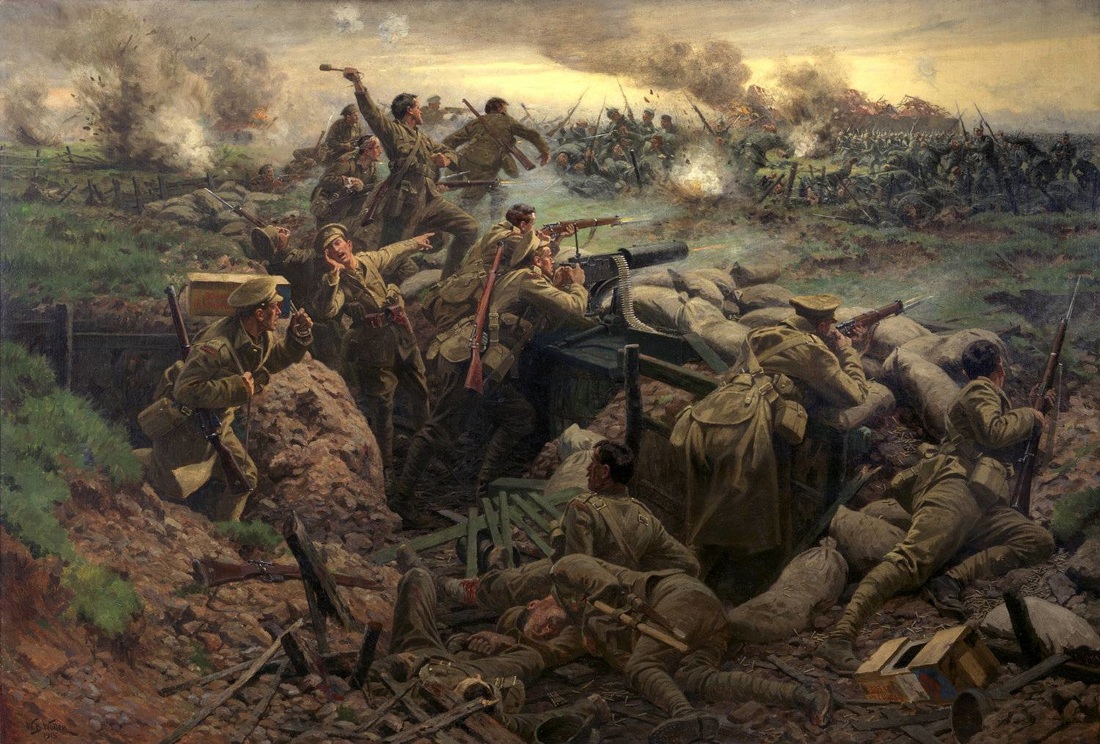“Uh…he’s on a recce,” I replied.
Except the OC wasn’t on a recce. As the platoon commander, I knew very well that the major in charge of our company was at a local restaurant, drinking coffee and more importantly, staying warm.
Why did it matter?

But that kind of leadership is insidious. Like the infamous Lieutenant Dike in the HBO series Band of Brothers, leaders who are always making up excuses to be elsewhere are parasites to morale. Which brings us to the next leadership principle.
Direct, motivate by persuasion and example, and by sharing risks and hardships
Like so many of the other principles we’ve looked at (and for good reason), the current principle has a uniquely military perspective. There’s no better imagery for fulfilling this principle than the combat leader living in the same conditions as the troops, first out the door when the call comes, a la Dick Winters. What’s more, the term ‘directing’ is generally associated with down and into an organization, to exert control over something based on conferred authority, or command. This is positional power at its finest, and it doesn’t apply to a writer in any way since their position isn’t conferred on them by anyone (unless you count the Muse – but the Muse isn’t in the practice of issuing commissions!)
Expert power is the ability to influence based on possessing unique knowledge, skills or experience. Everybody wants to know what Warren Buffett knows about investing, because he’s generally considered to be a personal finance expert.
Referent power is the capacity to evoke feelings of acceptance, loyalty, approval, or respect in others. There are numerous military leaders who’ve engendered these types of feelings, even amongst their enemies. Saladin, Robert E. Lee, Erwin Rommel, the list could go on and on.
Connection power is the ability to leverage contacts or networks to access information, resources or opportunities. Think of Malcolm Gladwell’s concept of Connectors, from his novel, The Tipping Point – that represents power, of a sort.
So where does that leave us in terms of applying this concept to the business of writing?
|
Similarly, referent power could give a writer enormous influence – it’s the power of respect. Consider Ms. J.K. Rowling, who’s respected not only for having created the Harry Potter universe, but because her actions elicit trust and acceptance from her fans. Whilst writing The Deathly Hallows, she routinely blogged as a means of staying in touch and connecting. What’s more, if there were any question that a writer couldn’t be a person of influence, in 2010 Ms. Rowling was named the “Most Influential Woman in Britain,” – ahead of the Queen. Leadership indeed.
|
|
Lead from the front. As one might expect, this means taking an active role in what you’re asking others to do. It’s about being visible, open, and transparent, all of which is applicable to a writer. For example, author platforms aren’t simply for marketing upcoming books to readers; they’re a forum to connect and form relationships. This tenet is about putting oneself out there and accepting the risk that comes with exposing vulnerability of beliefs and ideas.
|
As an introvert, I spent years trying to be the electrifying, brash, motivational leader that we’re encouraged to be in combat arms training, just as ready for a night on the town as a night on patrol. And while I can be that person, it takes a lot of energy. In the end (and after many years), I’m just not that concerned with whether people think I’m fun to hang out with, but I’m a lot concerned with whether people think I can get the job done. Maybe that betrays a certain bias, but at this point I’m comfortable in my own skin. It’s okay to consciously decide not to do certain things because they’re not for you, but find out other ways to accomplish the same effect (as long as that’s not going to drink coffee in a warm restaurant while everyone else freezes).
The application of this to writing is that you need to know what kind of writer you are and don’t try to pretend otherwise. Are you in it to make a quick buck or are you in it to tell difficult stories, even if nobody ever reads them? Check out Steven Pressfield’s article, What Kind of Writer Are You?, it’s enlightening.
So after all that, yes, writers are probably not chopping the pie and directing anybody; that’s simply not the name of the game. But that doesn’t mean writers don’t exert influence; Ms. Rowling’s example is testament to this point. Ultimately, this principle is about preserving your credibility, which is important whether you’re a soldier or a writer.


